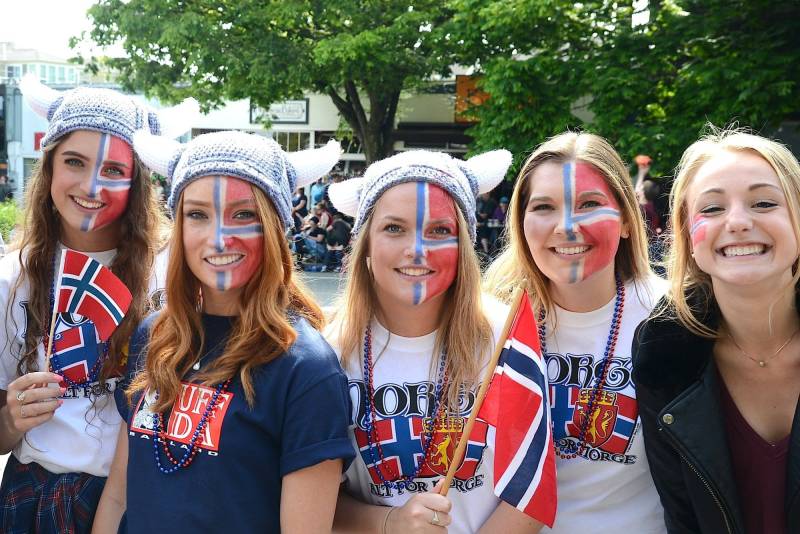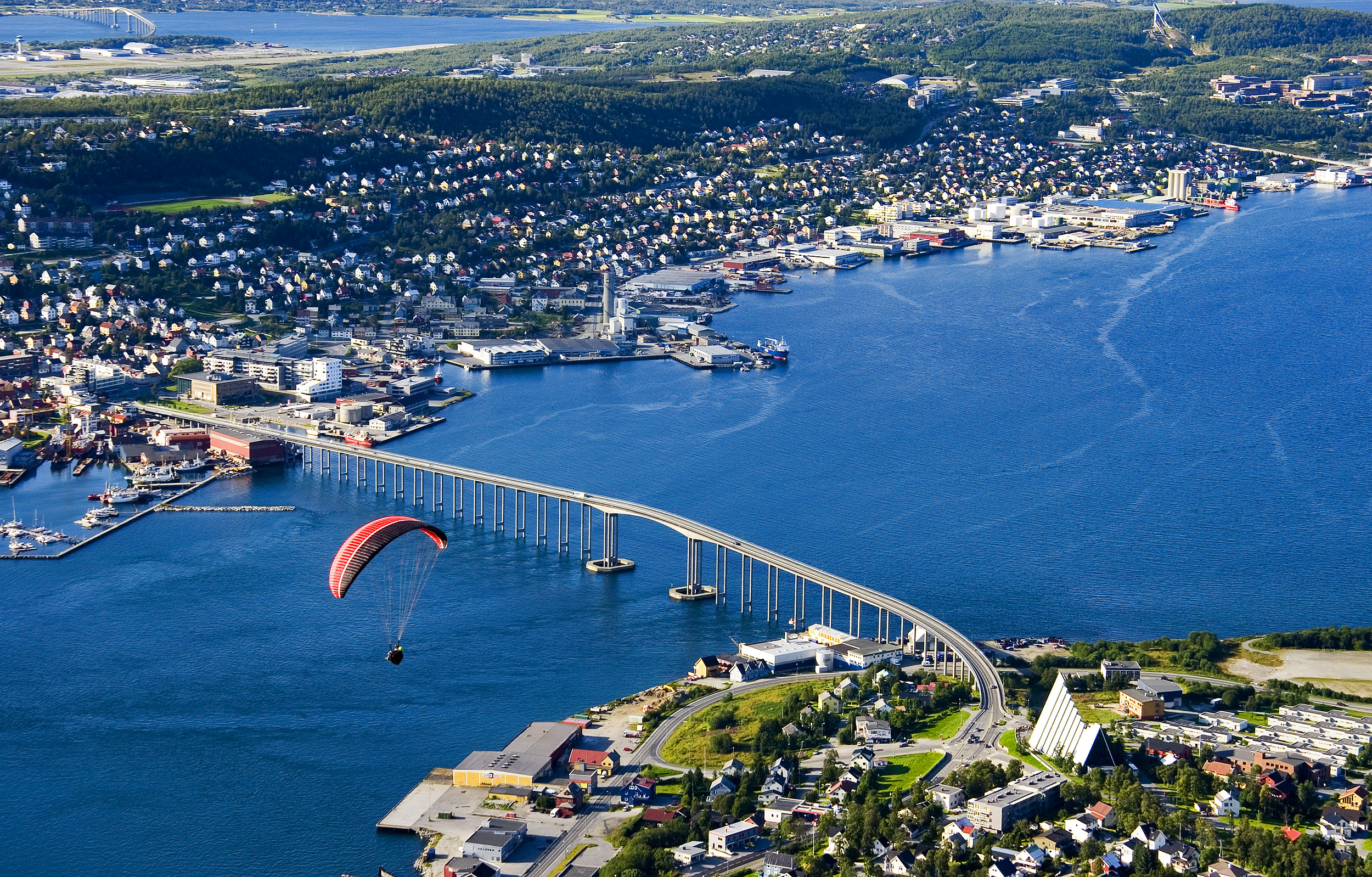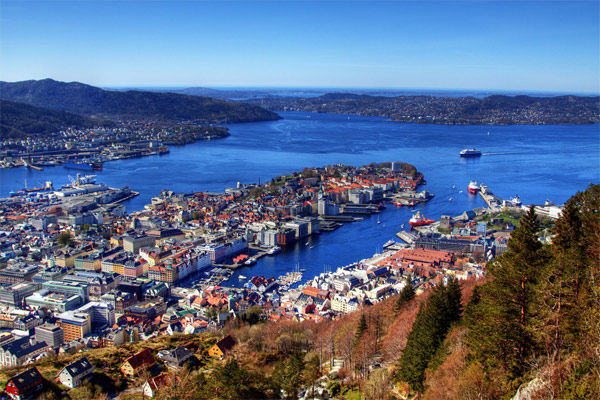Latest
Norway named world's best place to live
04:34 PM | 16 Dec, 2015

NEW YORK (Web Desk) - Norway has been declared the best country in the world to live in followed by Australia and Switzerland for the 12th year in a row.
The Human Development Index (HDI) is a measure of basic human developments within 188 countries, released by the UN in its annual Human Development Report.
Pakistan ranked 147 among 188 countries in 2014 in Human Development Report 2015 released today (Wednesday) by the United Nations Development Programme (UNDP). While, India was placed 130 and Bangladesh 142 respectively.
"India's HDI value for 2014 is 0.609, which puts the country in the medium human development category, positioning it at 130 out of 188 countries and territories.
"Between 1980 and 2014, India's HDI value increased from 0.362 to 0.609, an increase of 68.1 per cent or an average annual increase of about 1.54 per cent," a note circulated with the report said.
The HDI is an average measure of basic human development achievements in a country. It is a summary measure for assessing long-term progress in three basic dimensions of human development -- a long and healthy life, access to knowledge and a decent standard of living.
Life expectancy at birth increased to 68 years in 2014 from 67.6 in the previous year and 53.9 in 1980.
Gross National Income (GNI) per capita was USD 5,497 in 2014 up from USD 5,180 in 2013 and USD 1,255 in 1980.in 2013 and USD 1,255 in 1980. India's GNI per capita increased by about 338 per cent between 1980 and 2014.

According to the report, India's 2014 HDI of 0.609 is below the average of 0.630 for countries in the medium human development group and above the average of 0.607 for countries in South Asia.
From South Asia, countries which are close to India in 2014 HDI rank and to some extent in population size are Bangladesh and Pakistan, which have HDIs ranked 142 and 147, respectively.
The report further said India's HDI for 2014 is 0.609. However, when the HDI for 2014 value is discount for inequality, the HDI falls to 0.435, a loss of 28.6 per cent due to inequality in the distribution of the HDI dimension indices.
Bangladesh and Pakistan show losses due to inequality of 29.4 per cent and 29.9 per cent, respectively.
The average loss due to inequality for medium HDI countries is 25.8 per cent and for South Asia it is 28.7 per cent. The Human inequality coefficient for India is equal to 27.7 percent.
On Gender Development Index (GDI), the report said the 2014 female HDI value for India is 0.525 in contrast with 0.660 for males, resulting in a GDI value of 0.795. In comparison, GDI values value of 0.795. In comparison, GDI values for Bangladesh and Pakistan are 0.917 and 0.726, respectively.
Talking about Gender Inequality Index (GII), it said India has a GII value of 0.563, ranking it 130 out of 155 countries in the 2014 index.
In India, 12.2 per cent of Parliamentary seats are held by women, and 27 per cent of adult women have reached at least a secondary level of education compared to 56.6 per cent of their male counterparts. For every 1,00,000 live births, 190 women die from pregnancy related causes; and the adolescent birth rate is 32.8 births per 1,000 women of ages 15-19.

Female participation in the labour market is 27 per cent compared to 79.9 per cent for men.
In comparison, Bangladesh and Pakistan are ranked at 111 and 121, respectively, on this index.
The 2015 Human Development Report (HDR) Work for Human Development examines the intrinsic relationship between work and human development.
Work, which is a broader concept than jobs or employment, can be a means of contributing to the public good, reducing inequality, securing livelihoods and empowering individuals, the report said.
Work, which is a broader concept than jobs or employment, can be a means of contributing to the public good, reducing inequality, securing livelihoods and empowering individuals, the report said.
"Work allows people to participate in the society and provides them a sense of dignity and worth. In addition, work that involves caring for others or voluntarism builds social cohesion and strengthens bonds within families and communities," the report said.
Courtesy: The Economic Times
The Human Development Index (HDI) is a measure of basic human developments within 188 countries, released by the UN in its annual Human Development Report.
Pakistan ranked 147 among 188 countries in 2014 in Human Development Report 2015 released today (Wednesday) by the United Nations Development Programme (UNDP). While, India was placed 130 and Bangladesh 142 respectively.
"India's HDI value for 2014 is 0.609, which puts the country in the medium human development category, positioning it at 130 out of 188 countries and territories.
"Between 1980 and 2014, India's HDI value increased from 0.362 to 0.609, an increase of 68.1 per cent or an average annual increase of about 1.54 per cent," a note circulated with the report said.
The HDI is an average measure of basic human development achievements in a country. It is a summary measure for assessing long-term progress in three basic dimensions of human development -- a long and healthy life, access to knowledge and a decent standard of living.
Life expectancy at birth increased to 68 years in 2014 from 67.6 in the previous year and 53.9 in 1980.
Gross National Income (GNI) per capita was USD 5,497 in 2014 up from USD 5,180 in 2013 and USD 1,255 in 1980.in 2013 and USD 1,255 in 1980. India's GNI per capita increased by about 338 per cent between 1980 and 2014.

According to the report, India's 2014 HDI of 0.609 is below the average of 0.630 for countries in the medium human development group and above the average of 0.607 for countries in South Asia.
From South Asia, countries which are close to India in 2014 HDI rank and to some extent in population size are Bangladesh and Pakistan, which have HDIs ranked 142 and 147, respectively.
The report further said India's HDI for 2014 is 0.609. However, when the HDI for 2014 value is discount for inequality, the HDI falls to 0.435, a loss of 28.6 per cent due to inequality in the distribution of the HDI dimension indices.
Bangladesh and Pakistan show losses due to inequality of 29.4 per cent and 29.9 per cent, respectively.
The average loss due to inequality for medium HDI countries is 25.8 per cent and for South Asia it is 28.7 per cent. The Human inequality coefficient for India is equal to 27.7 percent.
On Gender Development Index (GDI), the report said the 2014 female HDI value for India is 0.525 in contrast with 0.660 for males, resulting in a GDI value of 0.795. In comparison, GDI values value of 0.795. In comparison, GDI values for Bangladesh and Pakistan are 0.917 and 0.726, respectively.
Talking about Gender Inequality Index (GII), it said India has a GII value of 0.563, ranking it 130 out of 155 countries in the 2014 index.
In India, 12.2 per cent of Parliamentary seats are held by women, and 27 per cent of adult women have reached at least a secondary level of education compared to 56.6 per cent of their male counterparts. For every 1,00,000 live births, 190 women die from pregnancy related causes; and the adolescent birth rate is 32.8 births per 1,000 women of ages 15-19.

Female participation in the labour market is 27 per cent compared to 79.9 per cent for men.
In comparison, Bangladesh and Pakistan are ranked at 111 and 121, respectively, on this index.
The 2015 Human Development Report (HDR) Work for Human Development examines the intrinsic relationship between work and human development.
Work, which is a broader concept than jobs or employment, can be a means of contributing to the public good, reducing inequality, securing livelihoods and empowering individuals, the report said.
Work, which is a broader concept than jobs or employment, can be a means of contributing to the public good, reducing inequality, securing livelihoods and empowering individuals, the report said.
"Work allows people to participate in the society and provides them a sense of dignity and worth. In addition, work that involves caring for others or voluntarism builds social cohesion and strengthens bonds within families and communities," the report said.
Courtesy: The Economic Times
The author is working as Editor Digital Media for Daily Pakistan and can be reached @ItsSarfrazAli.

Advertisement
-
Punjab police constable rapes girl on pretext of marriage in Lodhran
03:10 PM | 18 Apr, 2024 -
Punjab bans use of plastic bags from June 2024
02:48 PM | 18 Apr, 2024 -
Indonesia's Remote Worker Visa: Here's eligibility criteria for ...
02:40 PM | 18 Apr, 2024 -
Ken Doll claps back at Khalil Ur Rehman Qamar, Adnan Siddiqui over women ...
02:19 PM | 18 Apr, 2024 -
Govt employee attempts suicide by jumping off Punjab Assembly building
01:58 PM | 18 Apr, 2024
Rupee exchange rate to US Dollar, Euro, Pound, Dirham, and Riyal - 18 April 2024
Pakistani currency continues to gain against US Dollar and other currencies on April 18, 2024. US dollar was being quoted at 277.2 for buying and 280.3 for selling.
Euro comes down to 293 for buying and 296 for selling while British Pound stands at 342.25 for buying, and 345.65 for selling.
UAE Dirham AED was at 75.25 and Saudi Riyal's new rates was at 73.30.
Today’s currency exchange rates in Pakistan - 18 April 2024
| Currency | Symbol | Buying | Selling |
|---|---|---|---|
| US Dollar | USD | 277.2 | 280.3 |
| Euro | EUR | 293 | 296 |
| UK Pound Sterling | GBP | 342.25 | 345.65 |
| U.A.E Dirham | AED | 75.25 | 75.95 |
| Saudi Riyal | SAR | 73.3 | 74.05 |
| Australian Dollar | AUD | 181 | 182.8 |
| Bahrain Dinar | BHD | 739.63 | 747.63 |
| Canadian Dollar | CAD | 201 | 203 |
| China Yuan | CNY | 38.45 | 38.85 |
| Danish Krone | DKK | 40.45 | 40.85 |
| Hong Kong Dollar | HKD | 35.57 | 35.92 |
| Indian Rupee | INR | 3.32 | 3.43 |
| Japanese Yen | JPY | 1.86 | 1.94 |
| Kuwaiti Dinar | KWD | 902.26 | 912.91 |
| Malaysian Ringgit | MYR | 58.24 | 59.52 |
| New Zealand Dollar | NZD | 164.75 | 169.63 |
| Norwegians Krone | NOK | 25.42 | 25.68 |
| Omani Riyal | OMR | 722.1 | 730.1 |
| Qatari Riyal | QAR | 76.37 | 77.05 |
| Singapore Dollar | SGD | 206 | 208 |
| Swedish Korona | SEK | 25.72 | 26.02 |
| Swiss Franc | CHF | 307.11 | 309.61 |
| Thai Bhat | THB | 7.56 | 7.76 |
Advertisement
Lifestyle
Blogs
- Who is the most followed Pakistani actor on Instagram? 09:55 PM | 3 Apr, 2024
- Forbes 2024 List of World's Billionaires is out now: Taylor Swift, ChatGPT founder enter elite ranks 12:12 PM | 3 Apr, 2024
- Pakistan's ranking improves by 7 spots in Transparency International Corruption index 01:52 PM | 30 Jan, 2024
- Pakistan Army ranked among top 10 strongest militaries in the world 01:42 PM | 17 Jan, 2024
- 10 Top Google searches made by Pakistanis in 2024 09:36 PM | 20 Mar, 2024
- Famous People Who Passed Away in 2023 08:35 PM | 26 Dec, 2023
Follow us on Facebook
Follow us on Twitter
Sign up for Newsletter
Copyright ©2024. Reproduction of this website's content without express written permission from 'Daily Pakistan' is strictly prohibited.
